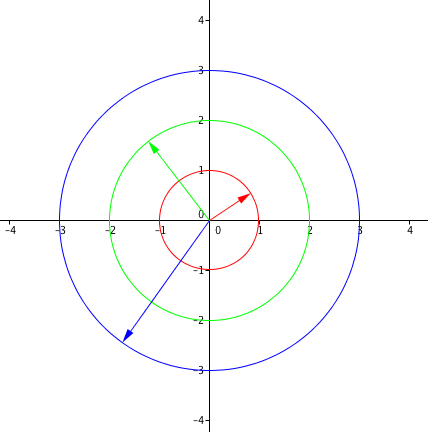Absolute Value of Complex Numbers

Complex numbers are in the form of , Where is the Imaginary Unit, defined as the square root of minus 1.
Absolute Value is often viewed as the "distance" a number is away from 0, the origin. In the domain of Real Numbers, This is just the positive of that number, so the absolute value of -5 will be 5 and the absolute value of 5 will also be 5.
When it comes to the absolute value of Complex Numbers, we have to consider the Complex Plane. The Complex Plane is similar to the xy-Coordinate Plane, only instead of the x and y axis you have the real and imaginary axis. The Number will have coordinates (3,4) on the complex plane.
How will we find the distance a number is from 0 on the complex plane? We can use the Pythagorean Theorem! The Absolute Value of a complex number is defined as:
For Example, the Absolute Value of the complex number is equal to:
Easy Math Editor
This discussion board is a place to discuss our Daily Challenges and the math and science related to those challenges. Explanations are more than just a solution — they should explain the steps and thinking strategies that you used to obtain the solution. Comments should further the discussion of math and science.
When posting on Brilliant:
*italics*or_italics_**bold**or__bold__paragraph 1
paragraph 2
[example link](https://brilliant.org)> This is a quote# I indented these lines # 4 spaces, and now they show # up as a code block. print "hello world"\(...\)or\[...\]to ensure proper formatting.2 \times 32^{34}a_{i-1}\frac{2}{3}\sqrt{2}\sum_{i=1}^3\sin \theta\boxed{123}Comments
Also, note that the "absolute value" of a complex number is also called the "magnitude." I myself tend to use magnitude for non-real numbers, and absolute value for real numbers.
Problem: What is the absolute value of the product of two complex numbers? Use specific examples to aid in your findings. Can you generalize your statement in any way?
@Yan Yau Cheng Can you add this to the Wiki page of Complex Numbers - Absolute Values? Thanks!